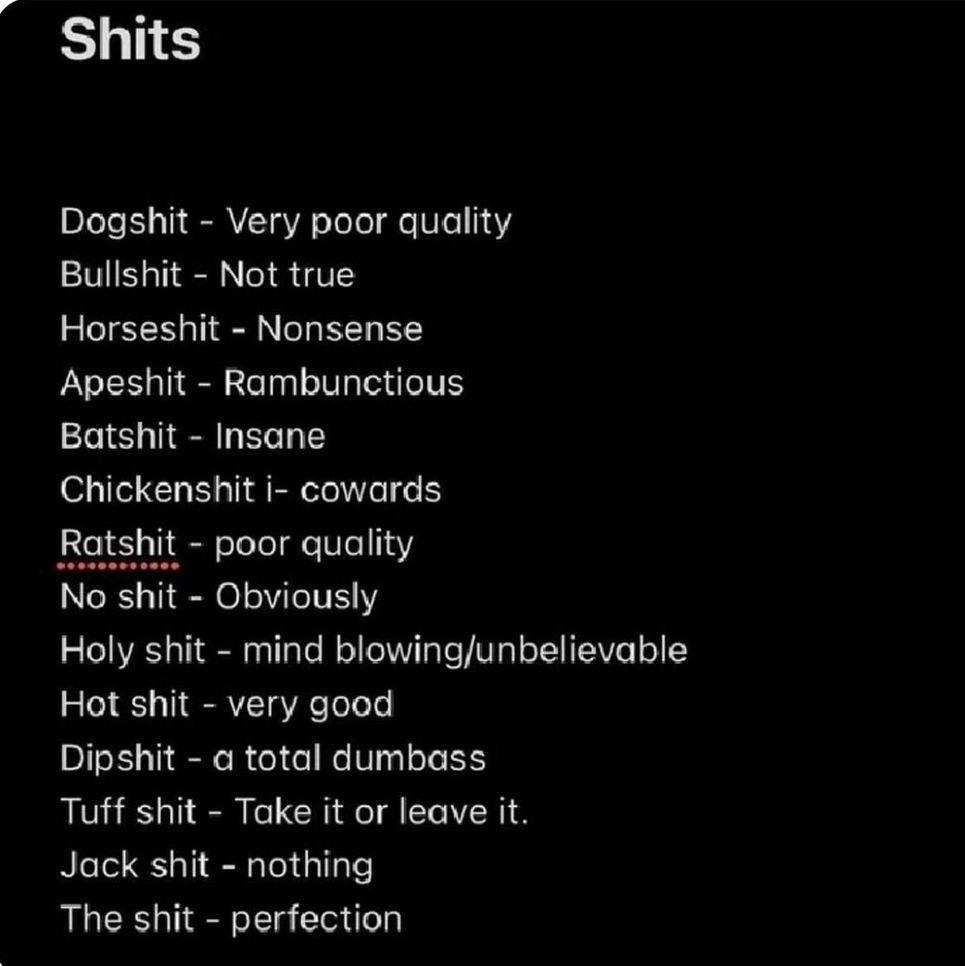


I would add:
Shit head: a negative term for a person who likely is toxic or caustic for other negative reasons
Shitter: a person who may enjoy shit head humor. One who shit is not necessarily negative like shit head. Could be used to casually downplay a type of humor (lightly positive) or to dismiss a type of behavior (lightly negative)












Alright, that does it. That’s the final straw